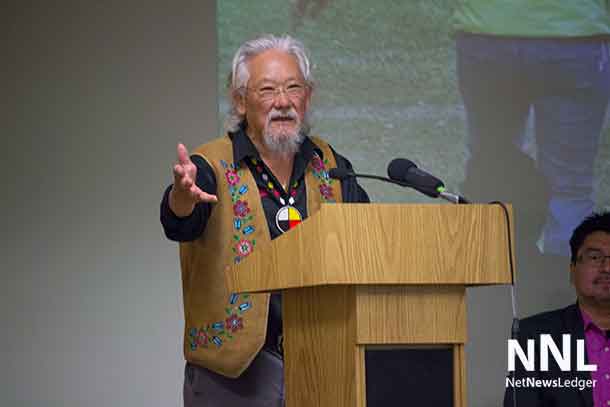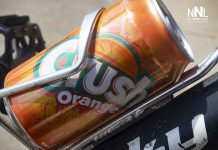TORONTO / THUNDER BAY — Today, a letter signed by more than 3,000 Canadians was submitted to Procter & Gamble in advance of its annual shareholder meeting in Cincinnati, Ohio. Sent by Ontario Nature and the David Suzuki Foundation, the letter calls on the company to start acting in alignment with its stated commitments to sustainable operations and forest conservation, by only sourcing pulp from forests where at-risk species are protected and Indigenous rights are respected.
“Procter & Gamble has the opportunity to play a leadership role by sourcing from forests managed to recover at-risk species and where free, prior and informed consent is obtained from Indigenous Peoples,” said Rachel Plotkin, Boreal Project Manager with the David Suzuki Foundation. “The company should also add recycled content to their disposable products rather than relying solely on new logging in the boreal, where industrial disturbance is driving at-risk caribou decline.”
Procter & Gamble is an American multinational corporation with sales exceeding $60 billion per year. It is one of the largest buyers of Ontario pulp, producing a vast array of single-use, disposable products, from diapers to toilet paper.
“COVID-19 showed us that we care about toilet paper – a lot – but it doesn’t need to come directly from forests that are home to vulnerable wildlife species,” said Dr. Julee Boan, Ontario Nature’s Boreal Program Manager based in Thunder Bay. “As we face the dual crises of mass biodiversity loss and climate change, we need corporate leaders to use more post-consumer recycled content for single use products.”
Procter & Gamble’s 2020 shareholder meeting comes amidst increased calls from consumers and environmental organizations for the company to use its market power to create and deliver products with recycled and more responsibly-sourced content that is better for the planet — especially its toilet paper. Procter & Gamble is especially under fire for its Charmin brand, which uses no recycled content and is instead made from trees logged in primary forests, which is contributing to caribou decline.
“Times are changing, and consumers are becoming more engaged, realizing they can ask corporations to make products without destroying nature. There is room for both – business and conservation – and companies have little choice but to listen,” said Plotkin.
Public outcry was spurred when the Government of Ontario announced its Forest Sector Strategy in August 2020. The province is prepared to nearly double the amount of industrial logging in Ontario while dismissing concerns from many environmental and Indigenous organizations about the lack of adequate consultation on how that increase could harm wildlife and waterways.
Changes are already afoot, or approved, to lengthen the time between independent forest audits, and to weaken how the Environmental Assessment Act and Endangered Species Act apply to forestry, among other deregulations.
“Procter & Gamble appears to be taking advantage of the Ontario government’s deregulation agenda,” said Boan. “If the government won’t hold the company to account, thousands of Canadians will.”







